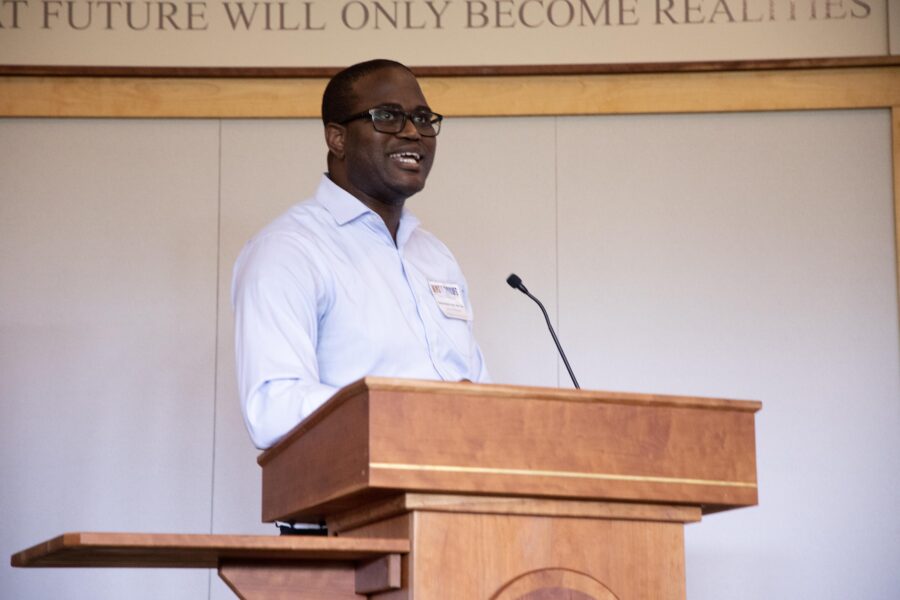Chibawanye Ene, MD, PhD, was excited to take part in INBRE’s annual meeting this past August.
Dr. Ene, an assistant professor in the department of neurosurgery/division of surgery at the University of Texas MD Anderson Cancer Center in Houston, is an INBRE veteran.
In fact, he’s an INBRE pioneer.
“I joined INBRE in 2002; we were the first class,” he said.
At the time, Dr. Ene was an undergraduate student at Nebraska’s Wayne State College, and he had always been interested in medicine and research.
“So, when I heard about a program that could allow you to not just start biomedical research at Wayne but also get to go to a much bigger university, to see research happening at a different level, I said ‘Sign me up.’”
Dr. Ene initially entered an MD program at Indiana University, but his excitement for research stayed with him, and he eventually paused his studies to enter a PhD program at Cambridge University.
Both his research work and his medical school experience led him into brain surgery, specifically involving brain and spinal tumors. And when he returned to the NE-INBRE conference in 2024, he was delighted to see the growth of the program and share his work, and his story, with current scholars.
“It’s important to for them to see how INBRE can be critical for lighting that spark for research in the future,” he said. “Number one, they need to be passionate about it while they’re here, pay attention to what they’re doing. Write papers while you’re in the program network. Look at the diversity of people that go through INBRE and what they’re doing, in terms of former INBRE people in industry, people with PhDs in academia, PhDs exploring legal aspect of science. And, of course, MD-PhDs like me, who are in the middle of medicine and research. I see patients, I take care of patients. But I also do research. You can do so many things, but INBRE can be a critical part of your journey.”
A big part of his message for young scholars, he said, was not letting rejection stop them.
“As students, you cannot be afraid of rejection, of perceived failure along the way,” he said. “We need to make sure they understand that.”
In a small group discussion held during the conference, many of the questions, he said, concerned failure: What if I don’t get into this program? What if I don’t get the test scores I need?
“You cannot be afraid and let things, even like a rejection from grad school, stop you from getting to your goals,” Dr. Ene said. “You will get to your goal. You cannot be afraid of rejection, because it is the rest of your career, whether it’s industry or academia — people reject your papers, reject your ideas. You must keep going.”
